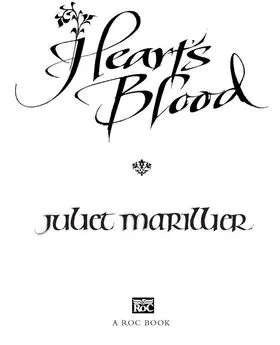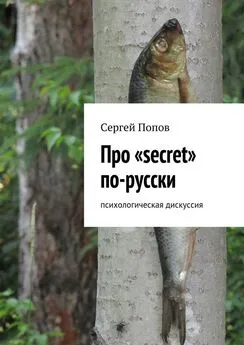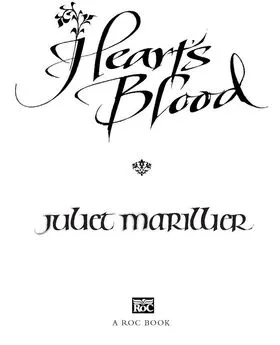Cybele's Secret - Juliet Marillier - Cybeles Secret
- Название:Juliet Marillier - Cybeles Secret
- Автор:
- Жанр:
- Издательство:неизвестно
- Год:неизвестен
- ISBN:нет данных
- Рейтинг:
- Избранное:Добавить в избранное
-
Отзывы:
-
Ваша оценка:
Cybele's Secret - Juliet Marillier - Cybeles Secret краткое содержание
Juliet Marillier - Cybeles Secret - читать онлайн бесплатно полную версию (весь текст целиком)
Интервал:
Закладка:
I got up to lean on the railing, looking down at the small light made by the night guard’s brazier. It had been placed in the center of the courtyard, well away from the chambers where precious cargoes were stored. “Some secrets are too dangerous to share,” I said.
“I expect nothing from you, kyria,” said Stoyan. “But I will tell you that before tonight I had not spoken of Taidjut save to my family and to those I thought might have knowledge of the boys taken that year. I have held this hidden, close to my heart. As for the farm and my hopes of the future, since I left there, I have never spoken of those things. Until now.”
So he had trusted me and I had not returned that trust. I was afraid that if I spoke of the magical journeys of my childhood, folk would dismiss it as girlish fancy. Yet here in Istanbul, the Other Kingdom loomed close. The nightmare with its darkness and terror seemed part and parcel of the odd things that had been happening—the black-robed woman with her embroidery, the mysterious words, even the pattern I had seen on that manuscript today and half remembered. What I needed most of all was someone to talk to, someone who would neither laugh nor be upset if I spoke of such things.
I sat quietly, wondering if I could try it, wondering how Stoyan would respond. I remembered the way he had spoken about Cybele. As I held a debate with myself, he brought a second blanket to cover my knees. He went down to brew more tea and carried it up to me. The moon hung above us, pure and delicate in its meadow of stars. Stoyan’s silence and his kindness helped me make up my mind. I would risk Tati’s story. It would be a test.
“You asked about Tati, my eldest sister,” I said. “She went through a portal to another place, a place that is not part of the human world. She fell in love with a man who had been taken there as a child and now cannot come back. She wanted to go, and we helped her, my other sisters and I. That’s only a very small part of a long, long story, and we don’t talk about it, not even with Father, because it still upsets him so much. Some people would hear it and think I was making it up. They’d assume I was a crazy girl with a wild imagination.”
Stoyan nodded gravely. “I had guessed something of the kind,” he said. “A difficult choice for you. They say the land of the Sultan swarms with giants, peris, and djinns. I would think this a place of many such portals, if one knew how to find them.”
So, just like that, he accepted it. No questions, no reservations. It was remarkable. I realized, in a surge of delighted relief, that in this distant part of the world, I had found a friend.
We stayed there until the first hint of dawn lightened the sky and the early call to prayer rang out across the Galata mahalle. Gradually the han came awake, folk opening shutters, others carrying water, the tea vendor setting up shop to serve a stream of early customers. It was time to get ready for another day.
I didn’t go back to Irene’s library that morning or for several days after. We were busy buying and selling. I had plenty of opportunity to assist my father, and word soon went around the trading quarter that I was almost as tough to deal with as he was. It was good to feel genuinely useful. But the mystery I had stumbled into at the library was never far from my thoughts. A restless urge to find answers disturbed my sleep.
There was something I needed to do before I returned to Irene’s. I broached the subject one evening over supper. Stoyan had set out our meal on the little table: a platter of flat bread, a bowl of onion and cucumber chopped together, dark olives, and a paste of peas ground up with garlic. Father and I took the two chairs while Stoyan leaned against the wall nearby. He said he was more comfortable that way; the furniture had been made for folk of far smaller build.
“Father, I have a favor to ask.”
“Mmm?”
“I’d like to go to Irene’s library again soon. I may be able to find useful information there, something about Cybele that may help us with our purchase. I want to visit her hamam, too, but I need new clothes. The gowns I’ve brought from home aren’t suitable for Istanbul. It was embarrassing that Irene needed to give me things to change into. Could we go to the public market so I can buy fabrics? Maria said she’d help me with the sewing.”
Father glanced at Stoyan.
“Few women venture into the çarşi,” Stoyan said. “You would attract much attention, kyria.”
“Why don’t you give Stoyan a list?” asked Father, scooping up ground peas with a chunk of bread.
I suppressed a sigh.
“I think Kyria Paula wishes to view the goods in person, Master Teodor.” It seemed Stoyan had understood my thoughts perfectly.
“I’d be disappointed if I came all the way to Istanbul and didn’t visit the covered markets, Father,” I said. “And didn’t you say you’d need Stoyan for a few days while you try to track down the other prospective purchasers for Cybele’s Gift?” I had passed on the gossip about the Sheikh-ul-Islam and the secret cult, as well as giving him a much-edited version of my conversation with Duarte Aguiar. That had done nothing to deter him from pursuing his round of visits. “If I’m with Maria sewing, I’ll be out of trouble while the two of you are away.”
Father smiled. “Since you put the arguments so convincingly, I can only capitulate. We’ll all go. The çarşi is a hive of activity. If we ask the right questions, there may be good information to be had.”
The next morning we walked through the Galata mahalle down to the waterfront. Here the Golden Horn was fringed by little coffee shops and resting areas. We descended a flight of steps to a rickety wooden jetty crammed with people. Stoyan conducted a rapid, intense conversation in Turkish with an official in a green turban. Once the price was agreed, this man used his silver-tipped staff to indicate a small caïque tied up amongst an assortment of larger craft. Vessels were arriving and leaving all the time, accompanied by shouting and near collisions. Similar jetties projected into the water for some distance along the bank. At this early hour, all were bustling. Both men and women were being ferried. The bigger craft had separate sections at the rear for female passengers.
I was wearing a plain gown in a good light wool dyed blue, and over my head a white scarf. Father looked distinguished in his merchant’s robe of deep red, with a flat velvet cap to match. Folk did glance at us; if our foreignness did not ensure that, Stoyan’s height and broad shoulders surely did. But there were people of all kinds getting on and off the boats, and the looks did not linger on us. Stoyan helped me aboard the rocking caïque, and I sat in the stern. Father settled beside me, with Stoyan farther forward.
The boatman edged us out through the chaotic tangle of vessels, and we headed across the water. He used the single set of oars to propel the caïque on a swift, bobbing course amidst the heavy traffic of the Golden Horn. The water sparkled around us. Sails of red and brown and cream passed like exotic butterflies. Looking backward and upstream, I glimpsed the Stea de Mare moored at the merchant docks and, beyond her, the taller form of the Esperança. On either side of the waterway, the towers of Istanbul rose tall against a perfect blue sky.
Halfway across, a huge, high-powered caïque passed us at speed, manned by a crew of eighteen oarsmen in red and white uniforms. In the stern, under a tasseled canopy, sat a grand personage clad in gold-encrusted robes. The wake nearly swamped us. I clutched the seat, imagining what it would be like trying to swim in such a congested channel. I met Stoyan’s eye and forced a smile.
“We are safe, kyria,” he said quietly. “This man is expert.”
“Mmm,” I murmured. It seemed important not to show how troubled I was by the shallow draft and rocking movement of the caïque. After all, I was the one who had requested this outing.
“You do not swim?” Stoyan asked conversationally.
“I can keep afloat,” I said. “But I’d rather not put my skills to the test clad in a woolen gown and boots.”
Father made a comment, but I didn’t catch it. In the back of a larger boat traveling near us sat several women robed in black. That in itself was nothing unusual; most of the female passengers I had seen from the dock were dressed the same way. But one of these travelers was staring straight back at me. A piece of ragged embroidery drooped limply from her hands like a small dead creature. I thought I could see a second girl on the cloth. Next to the black-haired dancer was a thin one with a cloud of curly brown hair and a frog balanced on her shoulder. My sister Jena. I shivered. What was this all about?
“Paula?”
My father sounded perplexed. I turned my attention to him.
“I’m sorry,” I said. “I thought I saw someone I knew, but I must have been mistaken.” And, indeed, when I looked back at the bigger ferry, I could no longer distinguish one woman from another. Anyway, how could I possibly have seen the details on her handiwork at such a distance? My imagination was playing tricks again. I applied my thoughts to what shade of fabric I would buy.
The çarşi was a warren of narrow alleys roofed with a series of domes supported by pillars. Here and there, openings in this roof admitted thin shafts of daylight.
“It’s so dark,” I muttered as we headed into a tiny street crowded with people. “Why aren’t there more lamps?”
“Fire,” said Father. “This place is full of hides and fabrics and papers. A single careless moment could send the whole mahalle up like a torch.”
The streets were lined with small shops, each with its owner seated on a bench outside. There was a street for kerchiefs and embroidered goods, Father explained, and one for coppersmiths, and another for leatherworkers, and so on. I wondered where the booksellers were, the ones Duarte had mentioned. The place seemed to go on forever. I could smell spices and roasting lamb and freshly ground coffee. Now that I was out of the caïque, I was keen to start shopping.
“If we can find a street of fabric sellers,” I said, “I’ll make my purchases straightaway. And, if you don’t mind, Father, I want to do the bargaining by myself.”
“Would I interfere?” Father was smiling. “Just make sure you stay in sight. The place is a maze, and it’s easy to lose one another in this gloom. Stoyan, will you go to the paper merchant’s establishment for me? He should have my order already bundled up; the price has been agreed in advance. By the time you come back to us, my daughter may have brought her business to a conclusion.”
For a little while, we could see Stoyan’s dark head as he moved away through the crowd; then he was gone.
We worked our way down the cloth merchants’ street. Father stood quietly observing the passing crowd, leaving me to exercise my halting Turkish. I was determined not to ask him for help. I drank a lot of tea and made a lot of polite inquiries as to the health of the merchants’ families. Those steps were necessary before the vendors would allow me to inspect their wares: rolls of linen and wool, lengths of fine gauze, muslin for turbans. There was delicate tissue for veils and thick felt for winter cloaks and caps.
At the third shop, I saw some linen I liked, but the price was exorbitant and I could not seem to bargain it down. The man waved his hands, speaking too quickly for me to follow.
“Red linen—too expensive,” I told him, hoping my Turkish was not as bad as his lack of understanding seemed to indicate. “I go elsewhere. Good day to you.”
Читать дальшеИнтервал:
Закладка:








